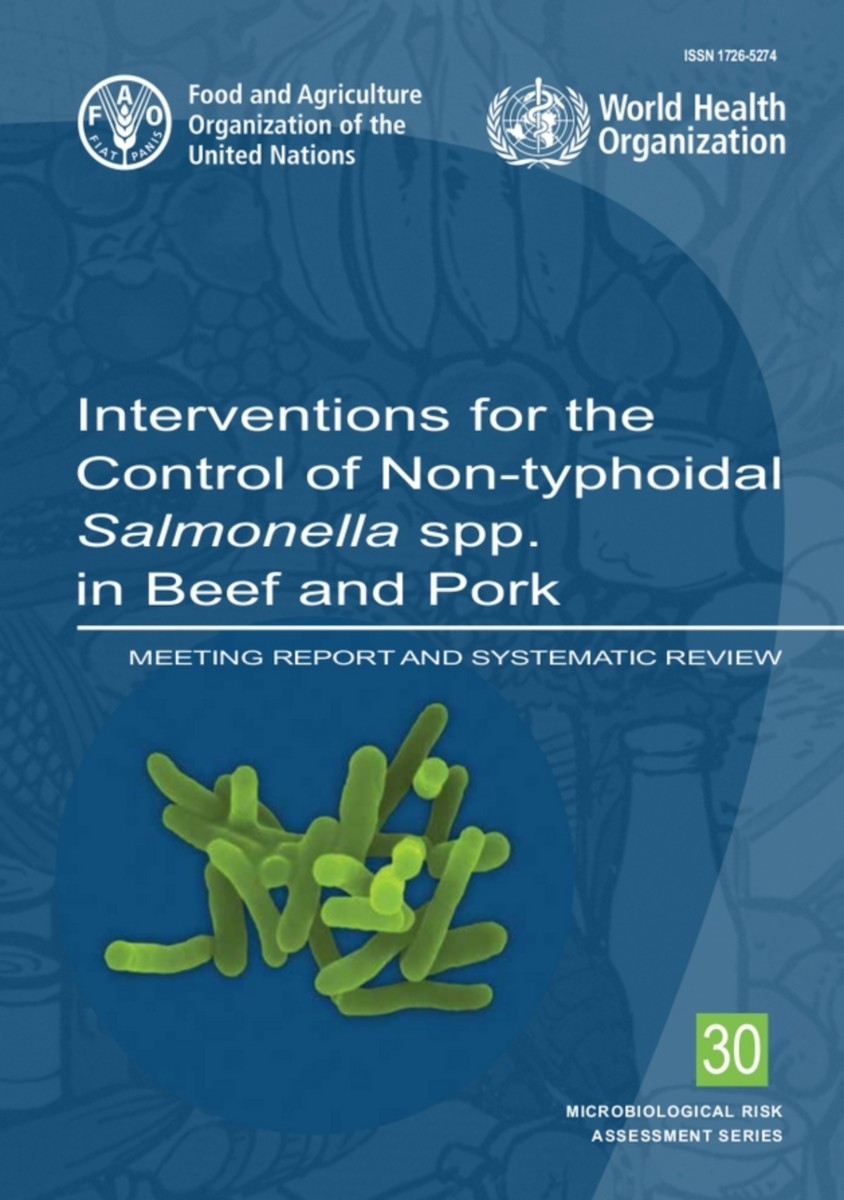Interventions for the Control of Non-typhoidal Salmonella spp. in Beef and Pork
Meeting Report and Systematic Review
- Publisher
World Health Organization - Published
15th February 2017 - ISBN 9789241565240
- Language English
- Pages 292 pp.
- Size 8.25" x 11.75"
Non-typhoidal Salmonella spp. (hereafter simply referred to as Salmonella) is estimated to cause 93.8 million cases of acute gastroenteritis and 155,000 deaths globally each year, approximately 85% of which are estimated to be foodborne. As a result, Salmonella has a significant public health and economic impact on society. Pork products are among the top foodborne sources of Salmonella globally. While beef products are a less significant source of salmonellosis in many countries, they have been implicated in several large outbreaks in recent years. Contamination of beef and pork with Salmonella can also have a negative impact on the agri-food and trade sectors due to costly recalls of products and by limiting market access.
The 45th Session of the Codex Committee on Food Hygiene (CCFH) agreed to develop "Guidelines for the Control of Non-typhoidal Salmonella spp. in Beef and Pork Meat." To facilitate this work, CCFH (November 2014) requested FAO and WHO provide scientific advice on this matter, by conducting a systematic literature review of the publicly available scientific literature to ensure that any relevant measures for the control of Salmonella in beef and pork are identified, and by convening an expert meeting to review the technical basis of the interventions proposed by CCFH. The experts were specifically asked to: advise on the most appropriate point(s) of application of specific interventions and decontamination treatments; verify, based on the available data, the efficacy of the interventions in terms of reduction of Salmonella; and advise, with some level of confidence, to the extent possible, on the quantifiable level of reduction that interventions achieve, and whether these are appropriate to include in the Codex guideline.
The FAO/WHO systematic review covered interventions from primary production, to the end of processing to control Salmonella in pork and beef. FAO and WHO also issued to all Member Countries a public "call for data" on control measures for Salmonella in pork and beef. Several replies were received in response to the call, a couple of which included previously unavailable information.
World Health Organization
World Health Organization is a Specialized Agency of the United Nations, charged to act as the world's directing and coordinating authority on questions of human health. It is responsible for providing leadership on global health matters, shaping the health research agenda, setting norms and standards, articulating evidence-based policy options, providing technical support to countries, and monitoring and assessing health trends.


